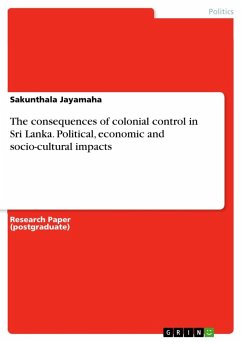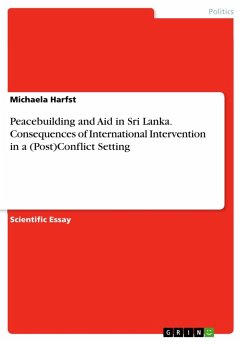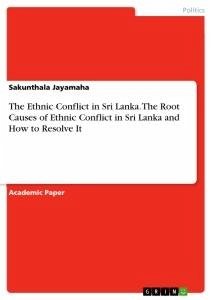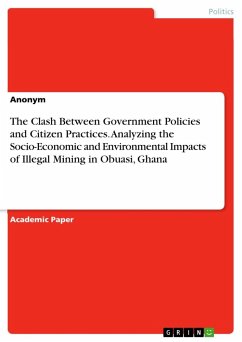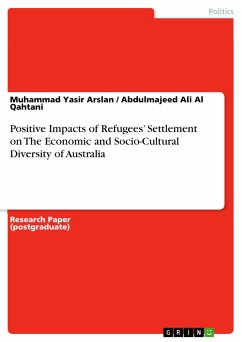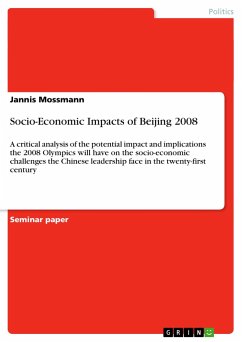Research Paper (postgraduate) from the year 2024 in the subject Politics - Region: South Asia, University of Peradeniya (Postgraduate Institute of Humanities and Social Sciences), course: Cultural Diversity in Sri Lanka, language: English, abstract: The purpose of this study is to discuss the consequences of colonial control in Sri Lanka. Colonialism was a major event that had a wide-ranging impact on nations. This article examines the socioeconomic structure of Sri Lanka as well as its historical administrative system. In the early 15th century, three Western nations conquered Sri Lanka. The following are the changes of importance under these three Western powers: The Portuguese were installed on the top layer of the administrative system, a royal council of ministers, and during the Dutch period, the island was subdivided into three large provinces centered on Jaffna, Colombo, and Galle. Their administration was far superior to the Portuguese, and they did not follow the Portuguese practice of assigning revenues from villages as payment for services. During that time, the administrative structure was roughly divided into three groups, and the Ceylonese's well-organized judicial system was introduced. Furthermore, for the first time in Ceylon, the British government was separated into five provinces, then nine, and provinces were divided into districts. They reorganized the political and administrative systems with the adoption of constitutional reforms. The Portuguese have created an export-based economy to Ceylon through their economic policies. The Dutch supported the growth of trade-value commodities; they introduced coffee into the country, and the British crown was sold cheaply to growers to stimulate plantation agriculture, which proved profitable. Religion, education, labor services, architecture, and language have all undergone socio-cultural transformations.
Hinweis: Dieser Artikel kann nur an eine deutsche Lieferadresse ausgeliefert werden.
Hinweis: Dieser Artikel kann nur an eine deutsche Lieferadresse ausgeliefert werden.

